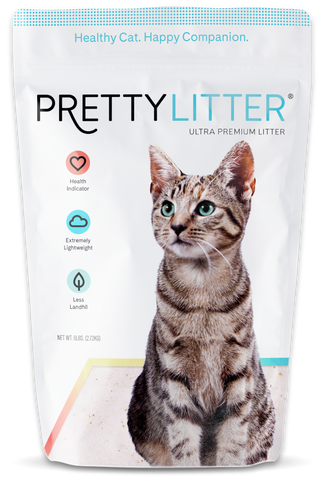November 29, 2018 |7 min read |Veterinarian Reviewed
Cat Roundworm: Causes, Symptoms, & Treatment

Written by

Roundworms are common parasites that a pet owner will have to deal with at some point. These nasty critters are especially dangerous for kittens and older cats, as well as cats with weakened immune systems.
Thankfully, there are preventative measures you can take to help keep your kitten safe and healthy. There are also treatments and veterinary medicine available that can keep a roundworm infestation under control or eradicate it completely.
If you are looking to learn about treatment for roundworms in cats, this blog post is here to help. Keep reading to find out everything you need to know about roundworms in cats, and probably some things you wish you never learned.
What Are Roundworms?
Roundworms found in cats are intestinal worms officially known as Toxocara cati, as opposed to the rarer Toxascaris leonina, which can infect both cats and dogs. These worms, or more specifically, these parasite eggs, reside in the gastrointestinal tract of infected cats. The adult roundworms lay eggs that are then passed on in cat feces.
As the name implies, roundworms are, well, round worms that look like white strings when seen with the naked eye. These intestinal parasites can be up to 6 inches long and often resemble spaghetti. They "swim" through the intestine and steal precious nutrients from your cat's digestive system.
While healthy adult cats can get by with a small roundworm infestation, large numbers of intestinal parasites can cause serious, even life-threatening symptoms. This is especially common in weak cats that are very young like a kitten. Older cat health problems can also be the cause of this.
Cat Litter That Prioritizes Their
Health & Your Happiness.
to get your first bag for only $14.99
Symptoms of Roundworm Infection

Many cats infected with this type of intestinal parasite are asymptomatic, meaning you might never know about the ailment. One of the easiest symptoms to observe is seeing white, rice-like flecks in your cat's stool or stuck to the fur around the cat's behind.
Other common symptoms include:
- Lethargy
- Abdominal swelling, typically referred to as a "potbelly"
- Vomiting
- Chronic hunger
- Weight loss
- Stomach upset
In severe cases, cats can develop a cough and/or pneumonia, which is a sign the parasitic worm infection has migrated from the intestinal tract and infested the lungs.
How Cats Get Roundworm
Roundworms are highly contagious and very common--never a good combination. The parasites are frequently present in kittens, as the infection can pass through the placenta and through the mother cat's milk. Many cats are thus infected as kittens, but they can also acquire roundworms by eating an infected animal like an infected rodent, worm, or bird.
The infection can also be passed by a cat eating or even just sniffing infected stool, plants, and dirt, as roundworm eggs can lie dormant for months or years before hatching. Not only is eating infected animals bad for your cat, but there is also toxic food for cats to be aware of as well.
Roundworm Prevention

There is no foolproof way to totally prevent roundworm infection, but there are steps you can take to prevent roundworms in your infected cat. The best prevention begins very early on. Because kittens are commonly infected at birth, they should be given deworming treatments regularly. Your veterinarian will establish the proper schedule with you, but usually this entails treatment about every two weeks from age three to nine weeks, and then at regular intervals afterward.
After that, try to keep your cat indoors as much as possible to limit potential exposure. Indoor-only cats are highly unlikely to encounter infected animals, soil, or waste. That said, be diligent about flea and insect control to keep your indoor cat from eating.
If you suspect your cat has a worm infestation, take him or her to the vet for an examination. The vet will likely test a stool sample in addition to doing a physical exam. If it's determined that the cat is infected, your veterinarian will then begin deworming treatment.

Roundworm Treatment
If your cat develops a roundworm infection, your veterinarian will most likely prescribe a pill or liquid dewormer, such as pyrantel pamoate, to target the adult worms and prevent the development of new roundworm larvae. Because adult roundworms, eggs, and larvae are not affected equally, it will take at least two (and possibly more) treatments to fully eliminate the intestinal parasite infection. The first dose of medication will kill the adult roundworms, but not any larvae and/or eggs that are present .
A second visit, usually a month or two later, is necessary to administer another dose to kill those eggs that have hatched. If symptoms persist, a third treatment may be required.
If you have a multi-cat home and suspect one is infected with this type of intestinal parasite, you should have all your cats treated at the same time. The parasite can be passed quickly, so even if a second cat isn't showing symptoms yet, it might already be infected.
Finally, make sure to keep your cats' bedding and litter boxes clean to help reduce the possible spread of parasitic worm infection.
While focusing on feline roundworms, it’s essential to be aware that cats can also be susceptible to other types of worm infections. It is important to know the differences in parasites such as roundworms vs tapeworms to ensure proper treatment and care for your cat’s health.
Have you ever had to battle a roundworm infection in your home with an infected animal? Share your stories and tips in the comments below!
----
Don't forget to follow us on Instagram: @prettylittercats
----
Delivered straight to your front door, every month. We’ll even pay your shipping.
For a limited time only, get 20% off your first PrettyLitter order. Enter code “LOVE20” at checkout. Redeem Now!
Sources:
1. https://vcahospitals.com/know-your-pet/roundworm-infection-in-cats
2. https://www.petful.com/pet-health/roundworm-infection-treatment-cats/
3. https://www.petbasics.com/education/roundworms-in-cats-and-dogs/
4. https://vcahospitals.com/know-your-pet/roundworm-infection-in-cats









